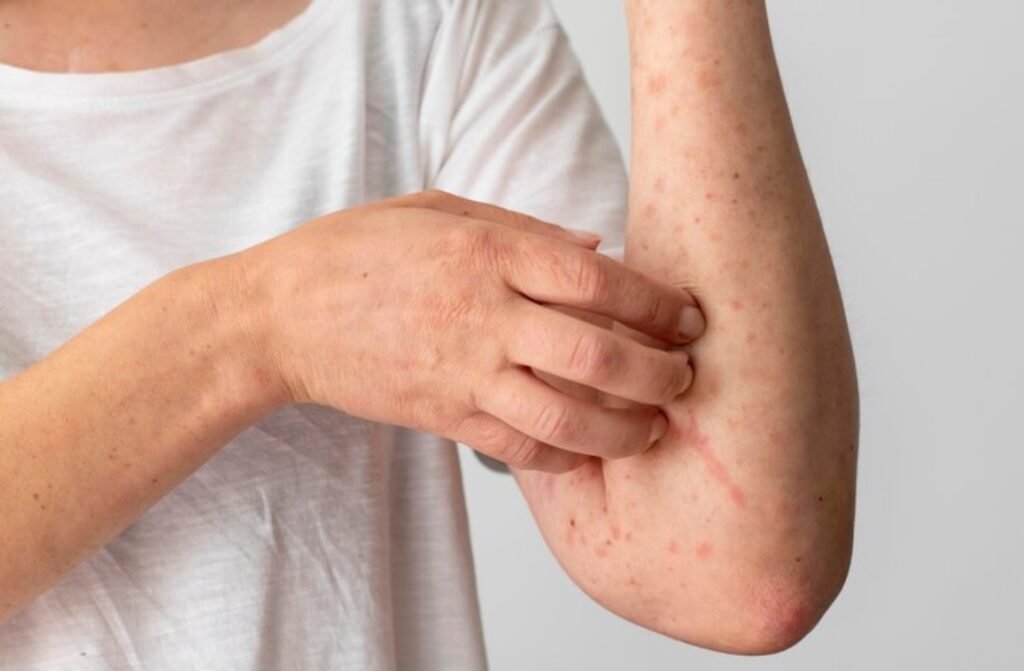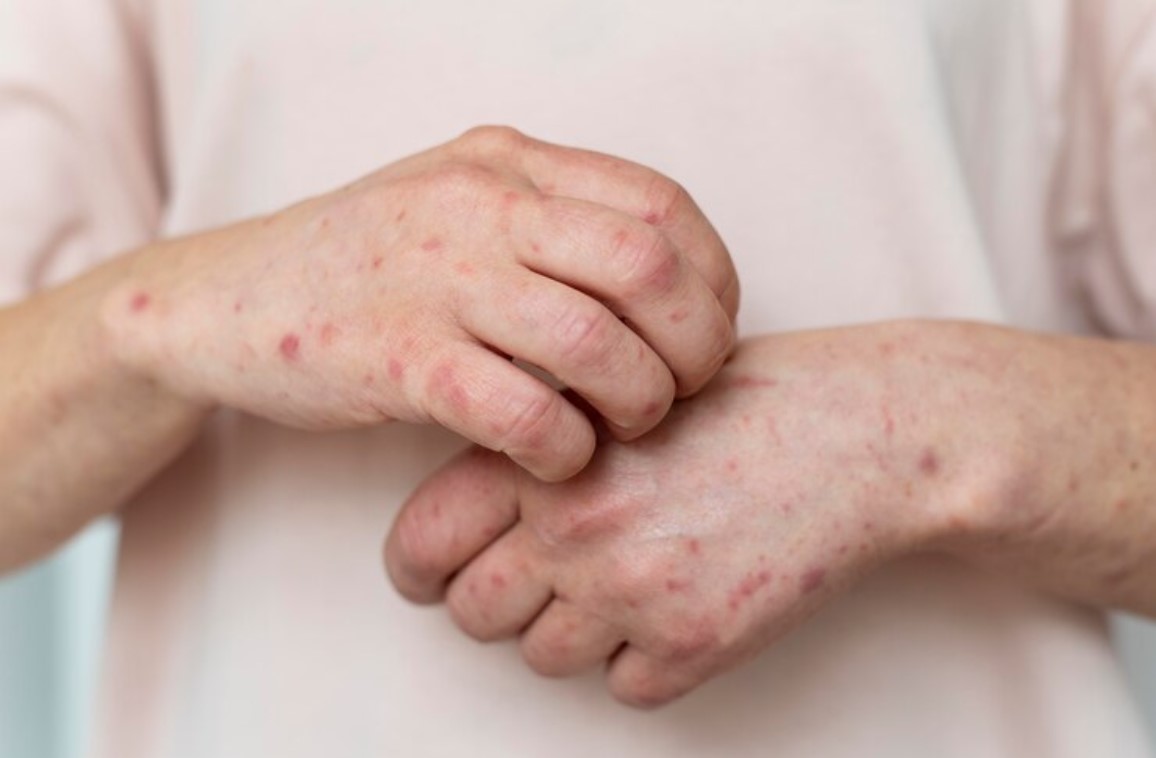Eczema, also referred to as atopic dermatitis, happens to be a common allergic skin condition that causes dry, itchy, and inflamed skin. The affected person scratches his or her skin. There are several eczema causes.
Eczema dermatitis is considered to be a condition that causes dry, itchy, and inflamed skin. It is common in young children but can also occur at any age. Atopic dermatitis is indeed long-lasting (chronic) and does tend to flare sometimes. It can be rather irritating, but not contagious.
People with atopic dermatitis are usually at risk of developing food allergies, hay fever, and asthma.
Moisturizing regularly and, of course, following other skin care habits can relieve itching and also prevent new outbreaks (flares). Treatment can also include medicated ointments or even creams.
Eczema Causes
The exact reason for the cause of eczema is not really known, but it is linked to the overactive response of one’s body’s immune system.
The risk factors include:
- Weakened or perhaps abnormally working immune system.
- Other health conditions like hay fever and asthma.
- Dry skin or other skin conditions like psoriasis.
- Insect bites.
- Disorders of veins similar to weakened veins.
- Environmental factors.
- Stress.
- Change in one’s genes.
- Damp hands and feet.
- Allergies to chemicals, metals, or even certain substances.
- Hairdressing, laundry, or perhaps dry cleaning, whereby one’s skin is constantly exposed to irritants.

More eczema causes:
Genetic factors: Few people have a gene variation that affects the skin’s ability to provide protection, leading to a weak barrier function.
Bacterial imbalance: Overgrowth of Staphylococcus aureus bacteria does disrupt the skin’s barrier function.
Immune system response: A weak skin barrier does trigger inflammation as well as symptoms.
Other types of dermatitis (contact dermatitis and seborrheic dermatitis) can indeed cause similar symptoms.
Why does eczema itch and scratch?
People do experience a flare-up of eczema and have a sense of “itch-scratch cycle.” This is when the person feels itchy and scratches their skin. This causes more inflammatory mediators to release, which in turn leads to more itchy, dry skin.
Symptoms:
- Dry, cracked skin.
- Intense itching (pruritus).
- Rash on swollen skin (color varies based on skin tone).
- Small raised bumps (on brown or black skin).
- Oozing and crusting.
- Thickened skin.
- Darkening of the skin around the eyes.
- Raw, sensitive skin due to scratching.
Eczema Treatment:
- Moisturize regularly.
- Make use of medicated ointments or creams.
- Light therapy (exposing one’s skin to mild sunlight or UV light).
- Manage triggers and also follow self-care steps.
Prevention
Developing a basic skincare routine can help prevent eczema flares. The following tips can help reduce the drying effects of bathing:
- Moisturize one’s skin at least twice a day – Creams, ointments, shea butter, and lotions seal in moisture. Choose a product or products that work well for an affected person. It should be safe, effective, affordable, and unscented.
Using petroleum jelly on one’s baby’s skin can help prevent the development of atopic dermatitis.
- Take a daily bath or shower. Use warm, rather than hot, water, and also limit one’s bath or shower to about 10 minutes.
- Use a gentle, non-soap cleanser. Choose a cleanser that happens to be free of dyes, alcohol, and fragrances. For young children, warm water to get them clean can be used. There is no need for soap or bubble baths. Soap can irritate the skin of young children. For people of any age, deodorant soaps and antibacterial soaps can no doubt remove too much of the skin’s natural oils and dry the skin. Do not scrub the skin with a washcloth or loofah.
- Pat dry. After bathing, try to gently pat the skin with a soft towel. Apply moisturizer while the skin is still damp (within three minutes).
Conclusion
Seek immediate medical attention if oneself or one’s child has a fever and the rash looks infected.

